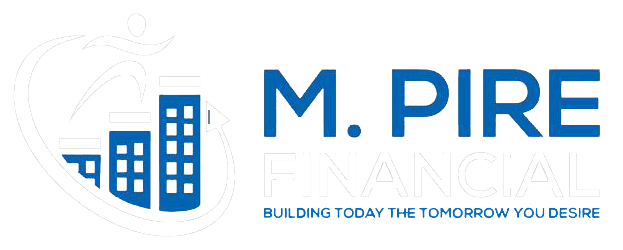Commercial Loans
ABOUT COMMERCIAL LOANS
What Is a Commercial Loan?
A business and a financial institution, such as a bank, can enter into what is known as a commercial loan, which is a kind of debt-based finance for businesses. It is often employed for the purpose of financing significant expenditures on capital assets and/or covering operating costs that the firm would not be able to afford otherwise. In many cases, small firms are unable to gain direct access to the bond and equity markets for the purpose of obtaining finance because of the prohibitively high upfront expenses and the numerous regulatory obstacles involved. This implies that, similar to individual customers, smaller firms must rely on other lending options, such as lines of credit, unsecured loans, or term loans, rather than traditional bank loans.
Fast process
Easy processing
Control over policy
Save your money
Advantages of Commercial Real Estate Loans Include:
Tax benefits
The interest on a commercial loan may be tax-deductible, which can help reduce a business's overall tax bill. This can be a significant advantage for businesses that are looking to reduce their tax liability.
Flexible repayment terms
Commercial loans typically have more flexible repayment terms than other types of loans, including longer repayment periods and more flexible payment structures. This can make it easier for businesses to manage their debt and make payments on time.
PROs of COMMERCIAL LOANS
Increased purchasing power
A commercial loan allows a business to borrow money to make large purchases that it may not be able to finance on its own. This can be especially useful for businesses that are growing and need to invest in new equipment, property, or inventory.
Access to a substantial amount of funding
By using a commercial loan to finance business expenses, a company can improve its cash flow by spreading the cost of a large purchase over several years. This allows the business to manage its finances more effectively and reduces the burden of large upfront expenses.
Access to capital
A commercial loan provides businesses with access to capital that they can use to grow and expand. This can be especially important for small businesses that are just starting out and need financing to get off the ground.
Improved credit history
By making timely payments on a commercial loan, a business can improve its credit history and increase its access to financing in the future. This can be particularly beneficial for businesses that are just starting out or that have a limited credit history.
Getting a commercial loan can be a crucial step in financing your business. Here are the steps to help you get a commercial loan:
- Prepare your financials: Before you start looking for a loan, it's important to have a clear understanding of your business's financial status. This includes preparing an up-to-date balance sheet, income, and cash flow statement. Having a clear understanding of your financials can help you to understand how much money you need and how you will use it.
- Determine your loan needs: Consider the purpose of the loan and how much money you need to borrow. This will help you to determine the type of loan that is right for you and the amount you will need to apply for.
- Find the right lender: Research different lenders and compare their loan products, interest rates, and repayment terms. Consider working with a lending specialist or a commercial loan broker who can help you to find the best loan options for your business.
- Complete a loan application: Once you have found a lender, you will need to complete a loan application. This will typically include detailed information about your business, including financials, ownership structure, and business history. You may also need to provide personal financial information, including your credit score and income.
- Provide collateral: Many lenders will require collateral to secure the loan, such as real estate, equipment, or inventory. You may also be asked to provide a personal guarantee, which means that you are personally responsible for repaying the loan if your business is unable to.
- Negotiate the loan terms: Once your loan application has been approved, you may be able to negotiate the loan terms, such as the interest rate, repayment period, and loan fees.
- Close the loan: Once the loan terms have been agreed upon, you will need to sign the loan documents and provide any required collateral. The lender will then disburse the loan funds to you, and you will begin making loan payments as agreed.
Getting a commercial loan can be a complex process, but with careful preparation and research, you can find the loan that is right for your business.
Commercial loans are loans specifically designed for business purposes. They are typically provided by banks, credit unions, and other financial institutions, and are used to finance various business expenses such as purchasing equipment, real estate, or working capital. Here's how commercial loans work:
- Loan application: To apply for a commercial loan, you'll need to complete a loan application and provide the lender with financial and business information, such as your balance sheet, income statement, and cash flow statement. You may also need to provide personal financial information, including your credit score and income.
- Approval process: The lender will review your loan application and financial information to determine if you are eligible for a loan and how much they are willing to lend. They will consider factors such as your creditworthiness, the size and stability of your business, and the purpose of the loan.
- Loan terms and conditions: If your loan is approved, the lender will provide you with the loan terms and conditions, including the loan amount, interest rate, repayment period, and any fees or charges associated with the loan.
- Collateral: Many lenders will require collateral to secure the loan, such as real estate, equipment, or inventory. This helps to reduce the lender's risk in case you are unable to repay the loan.
- Repayment: Repayment of the loan typically begins after a specified period, usually after the funds have been disbursed to you. Repayments are usually made on a monthly basis and include both the principal amount and the interest.
- Loan maturity: The loan will reach maturity when all the loan payments have been made and the loan has been fully repaid.
Eligibility
You must have sufficient income and credit history to qualify for a conventional mortgage.
Talk to a Loan Expert
Loan experts at Mpire Financial have extensive knowledge and experience in the loan industry, which allows them to guide you in making informed decisions about your finances. Call us directly or go to our Contact page and fill out our form for a callback.
The Mortgage Process
Getting a mortgage for a home involves a number of significant steps. We will be there for you every step of the way as your loan officer to make sure you are prepared for each and that you go through them efficiently.
Find The Right Loan
We have a wider variety of home loan programs to choose from. There are many options for homeowners looking to tap into their home equity, from first-time buyer loans to refinancing.
Mortgage Calculator
How much is the mortgage? How much money can you save if you refinance your mortgage? Is it wiser to buy or rent? Make your own calculations with these online calculators so you may draw your own conclusions.
MOST ASKED Commercial loan QUESTIONS
Commercial Loan FAQs
Reach Your Homeownership Goals
Call to Waldry Marte













